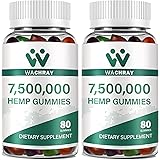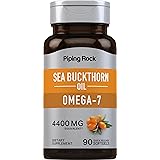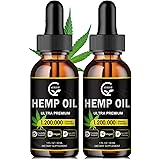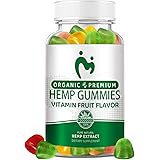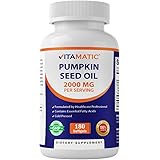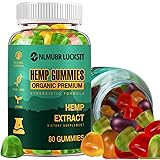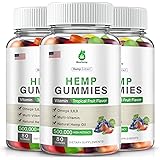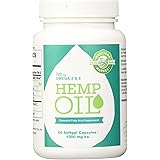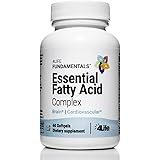Choosing between hemp oil and CBD oil for anxiety relief requires understanding their fundamental differences. Many individuals mistakenly believe these terms are interchangeable. This article expands on the insights shared in the video above, clarifying the distinct properties of each. We will delve into their origins, composition, and therapeutic applications. Ultimately, you will discover which product best supports your wellness goals. Selecting the right cannabis derivative is crucial when addressing specific health concerns, especially those related to mental well-being and anxiety.
Understanding Hemp Oil vs. CBD Oil: A Fundamental Distinction
The core distinction between hemp oil and CBD oil lies in their source and chemical composition. These two products, while both originating from the cannabis sativa plant, are like different tools from the same toolkit; they serve unique purposes. Hemp oil, often referred to as hemp seed oil, comes from the cold-pressing of the plant’s seeds. Imagine extracting oil from sunflower seeds; the process is quite similar. These seeds are naturally rich in various healthy fats, essential vitamins, and vital minerals. They do not, however, contain significant levels of cannabinoids.
Conversely, CBD oil, or cannabidiol oil, extracts from the flowers, leaves, and stalks of the hemp plant. These specific plant parts are where cannabinoids are most abundant. Cannabidiol (CBD) is just one of many cannabinoids found here. Think of it as extracting the potent essence from a plant’s most active components. This fundamental difference in sourcing directly impacts their effects on the human body. Understanding this distinction is the first step in making an informed choice for anxiety management.
Hemp Seed Oil: A Nutritional Powerhouse, Not an Anxiolytic
Hemp seed oil boasts a remarkable nutritional profile, making it a valuable dietary supplement. It serves as a powerhouse of essential fatty acids, specifically omega-3 and omega-6. These omegas are present in an optimal ratio, crucial for human health. The oil also provides a good source of vitamin E, various antioxidants, and protein. Many health-conscious individuals incorporate hemp seed oil into their daily diet for general wellness benefits. It promotes healthy skin, supports lustrous hair, and is a delicious addition to many meals.
Despite its impressive nutritional content, hemp seed oil contains no significant amount of cannabinoids. This means it lacks the direct therapeutic effects often associated with the cannabis plant. Therefore, while beneficial for overall body well-being, hemp seed oil will not specifically target anxiety symptoms. It is a fantastic dietary supplement, but it is not the answer if you seek direct relief from stress or anxiety. It’s like choosing a healthy cooking oil when you need specialized medicine.
Targeting Anxiety: Why CBD Oil Excels
For those seeking genuine anxiety relief, CBD oil emerges as the clear front-runner. Cannabidiol oil interacts uniquely with the body’s endocannabinoid system (ECS). This intricate system plays a pivotal role in regulating various bodily functions. These include mood, sleep cycles, pain perception, and immune response. CBD does not produce any psychoactive “high.” It offers therapeutic benefits without the mind-altering effects of THC. This characteristic makes CBD oil a preferred choice for many individuals. It supports mental well-being and physical comfort without impairment.
Research indicates CBD’s potential in modulating serotonin receptors in the brain. Serotonin is a crucial neurotransmitter vital for regulating mood and social behavior. By influencing these receptors, CBD may help stabilize emotional states. CBD also interacts with GABA receptors, which promote a calming effect. Think of GABA as the brain’s natural “brake” pedal; CBD can enhance its function. These complex interactions can significantly reduce feelings of unease and tension. Many studies highlight its impressive anxiolytic (anxiety-reducing) properties. This means CBD oil actively helps to alleviate anxiety.
The Science Behind CBD Oil for Anxiety Relief
Mounting scientific evidence supports the use of CBD oil for anxiety management. Clinical studies explore its profound impact on various anxiety disorders. For instance, research suggests CBD can effectively reduce social anxiety symptoms. Participants often report feeling calmer and more composed in public speaking situations. Individuals experiencing obsessive-compulsive disorder (OCD) may also find considerable relief. CBD potentially lessens the intensity and frequency of repetitive thoughts and compulsive behaviors. Furthermore, post-traumatic stress disorder (PTSD) symptoms can show significant improvement. CBD offers a pathway to reduced hypervigilance, distress, and intrusive thoughts. These findings collectively underscore CBD’s versatile therapeutic profile. It positions CBD oil as a powerful natural agent against various mental health challenges and chronic stress.
Beyond its direct impact on anxiety, CBD oil demonstrates a broad spectrum of therapeutic benefits. Studies show its efficacy in comprehensive pain management. Patients with chronic conditions like arthritis often report reduced pain and stiffness. CBD acts as a potent anti-inflammatory agent. This helps soothe joint discomfort and swelling. For individuals with neurological conditions such as multiple sclerosis, CBD can significantly alleviate muscle spasms and associated pain. It also plays a vital role in improving overall sleep quality, often disrupted by anxiety and chronic pain. CBD’s neuroprotective properties are also under active investigation. It supports overall neurological health and resilience. This comprehensive action makes CBD oil a holistic wellness supplement, addressing underlying issues contributing to anxiety.
Navigating THC Content and Product Choices for CBD Oil
Both hemp oil and CBD oil originate from the cannabis sativa plant, yet their tetrahydrocannabinol (THC) content demands careful attention. Hemp seed oil, derived from the plant’s seeds, typically contains negligible amounts of THC, often undetectable. Conversely, CBD oil products may contain trace amounts of THC, typically up to 0.3% by dry weight in the U.S. This level is specifically chosen because it is legally permitted and generally insufficient to cause any psychoactive effects. You will not experience a “high” from a properly formulated CBD product within this legal limit.
Reputable manufacturers provide transparent third-party lab reports for their CBD oil products. These crucial reports confirm the cannabinoid profile, verifying CBD content and ensuring THC levels are compliant. They also certify the absence of harmful contaminants. Consumers typically encounter three main types of CBD products: full-spectrum, broad-spectrum, and CBD isolate. Full-spectrum CBD contains all cannabinoids naturally found in the plant, including trace THC. Broad-spectrum offers a range of cannabinoids but has the THC completely removed. CBD isolate is pure cannabidiol, with all other plant compounds removed. Making an informed choice based on these distinctions is essential for effective anxiety relief.
Your Burning Questions: Understanding Hemp Oil, CBD Oil, and Anxiety Relief
What is the main difference between hemp oil and CBD oil?
Hemp oil, often called hemp seed oil, is pressed from the plant’s seeds and is a nutritional product. CBD oil is extracted from the flowers, leaves, and stalks of the hemp plant, where beneficial compounds called cannabinoids (like CBD) are abundant.
Can hemp oil help with anxiety?
No, while hemp seed oil is a great source of nutrients like healthy fats and vitamins, it does not contain significant amounts of cannabinoids. Therefore, it will not directly help with anxiety symptoms.
How does CBD oil help with anxiety?
CBD oil interacts with your body’s endocannabinoid system and can influence brain receptors that regulate mood, like serotonin and GABA. This interaction helps to stabilize emotional states and promote a calming effect.
Will CBD oil make me feel “high”?
No, properly formulated CBD oil products typically contain very low levels of THC (under 0.3% in the U.S.), which is not enough to cause any psychoactive effects or a ‘high.’



